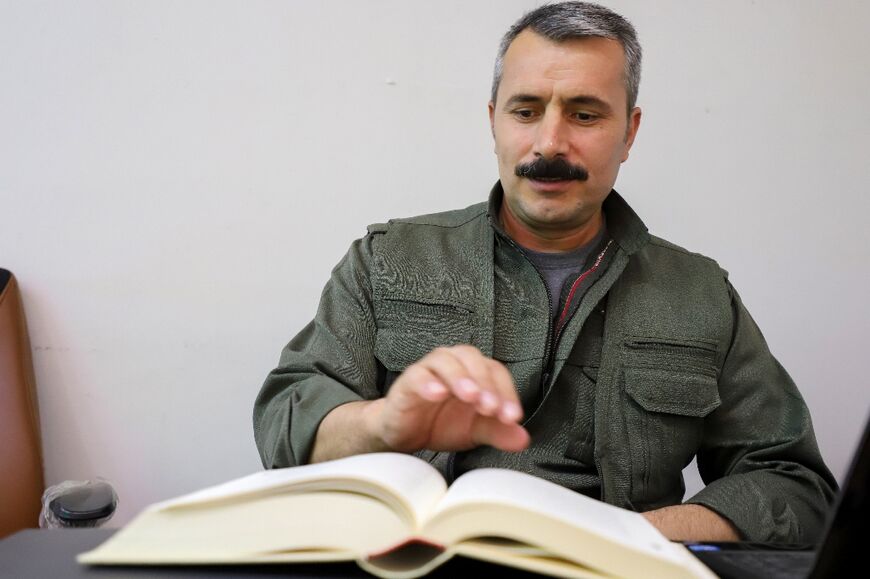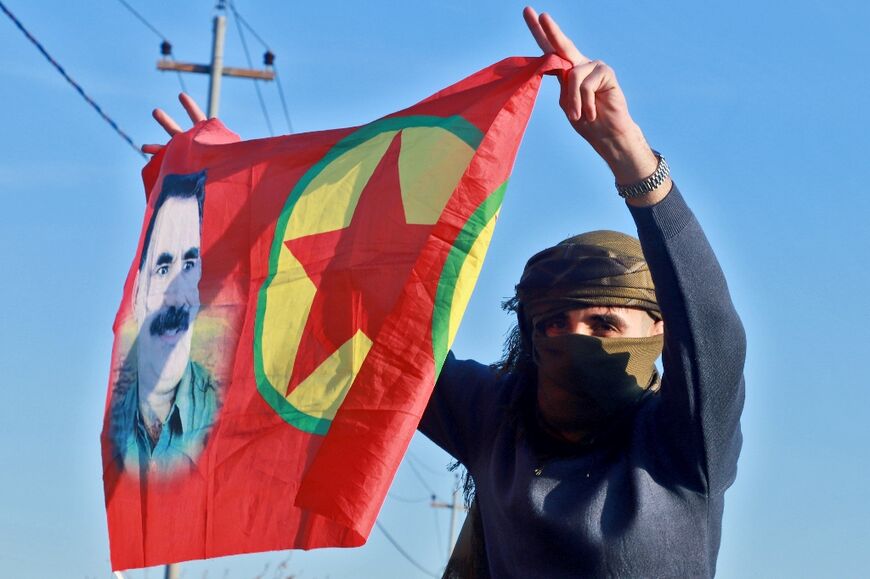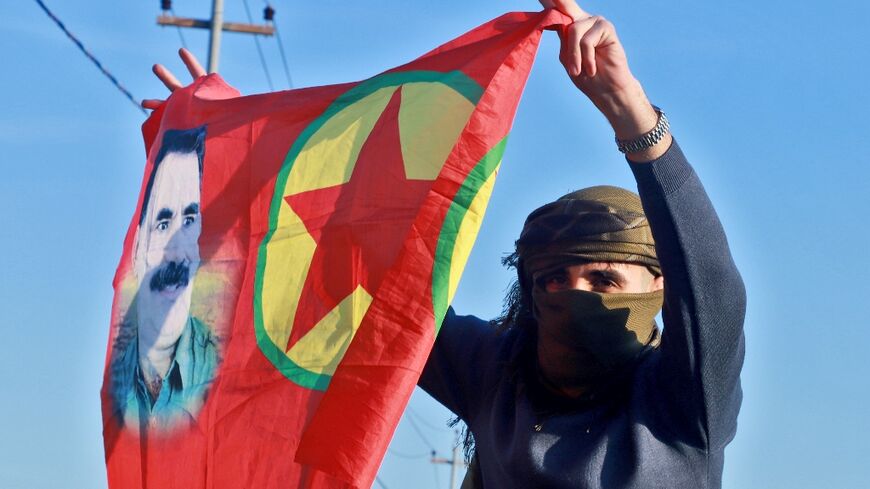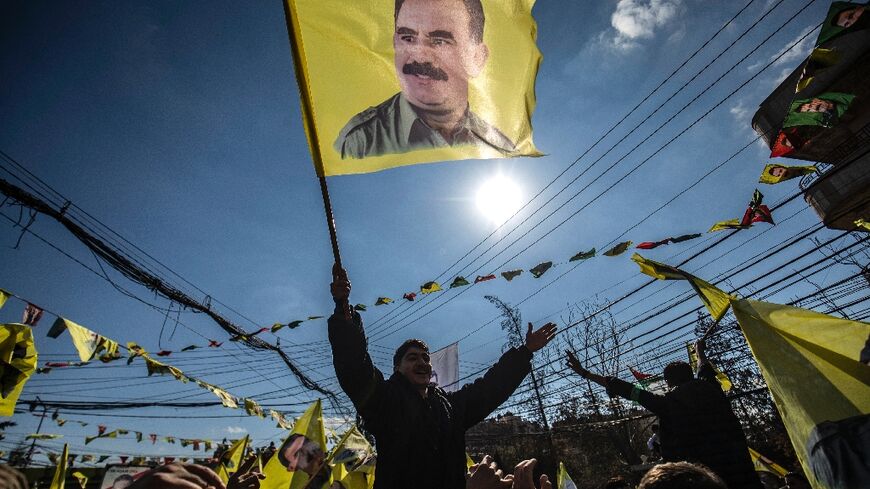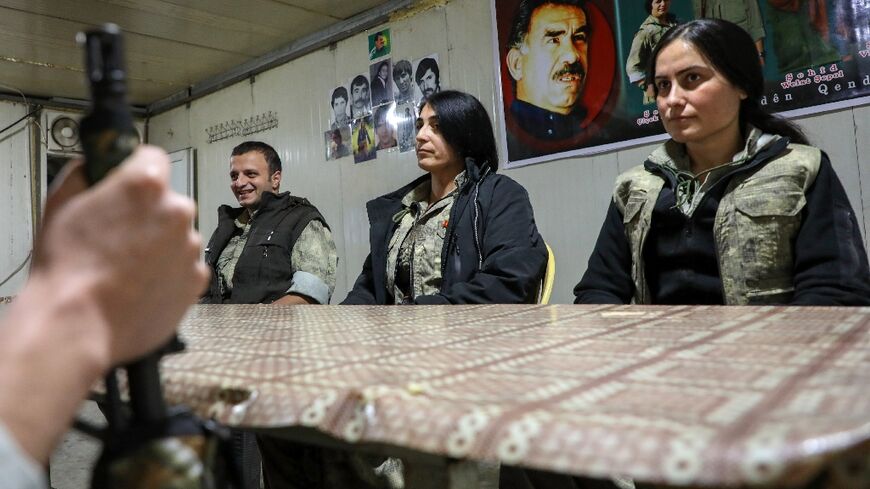PKK urges Turkey to ease imprisonment of 'chief negotiator' Ocalan
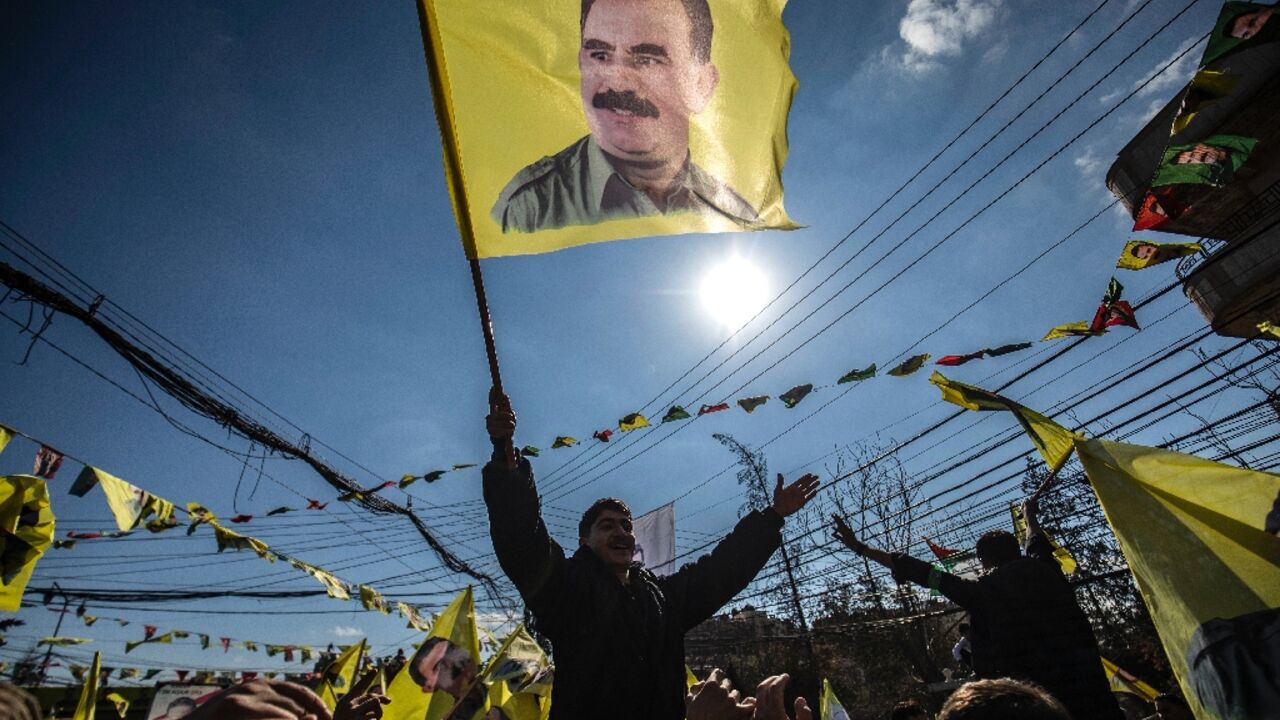
The Kurdistan Workers' Party (PKK) has said Turkey should ease prison conditions for its founder Abdullah Ocalan, declaring him the group's "chief negotiator" for any future talks after a decision to disband.
A spokesman for the Kurdish group, blacklisted as a "terrorist" organisation by Ankara and its Western allies, told AFP in an interview on Monday that Turkey has not yet provided guarantees for a peace process, and expressed objection to exiling PKK members.
In recent months, the PKK has made several historic decisions, starting with announcing a ceasefire and ultimately declaring on May 12 its dissolution, ending a decades-long insurgency against the Turkish state that cost more than 40,000 lives.
The group's moves followed an appeal by Ocalan, made in a letter from Istanbul's Imrali prison island where he has been held in solitary confinement since 1999.
Zagros Hiwa, spokesman for the PKK's political wing, told AFP in a written interview that "as an organisation which has waged military struggle for 41 years, we have decided to dissolve and put an end to armed struggle."
"By this, we give peace a real chance."
"So from now on, we expect that the Turkish state makes amendments in the solitary confinement conditions" of Ocalan, and allow him "free and secure work conditions so that he could lead the process," Hiwa said.
"Leader Apo is our chief negotiator" for any talks with Turkey, he added, referring to Ocalan.
- 'No guarantees' -
The spokesman said that "only Leader Apo can lead the practical implementation of the decision" taken by the PKK congress earlier this month to disband, paving the way for a political settlement.
The dissolution mechanisms are unclear yet, but the Turkish government has said it would carefully monitor the process to ensure full implementation.
Hiwa said the implementation would be addressed in Ocalan's negotiations with Turkish officials.
Observers expect the government to show a new openness to the Kurds, who make up about 20 percent of Turkey's population of 85 million.
But negotiations have not started, according to Hiwa, although "there are contacts and dialogues... being conducted in Imrali" prison.
Hiwa said that his group has shown "goodwill" and "seriousness and sincerity regarding peace".
But "till now the Turkish state has not given any guarantees and taken any measure for facilitating the process" and continued its "bombardments and artillery shellings" against the Kurdish group's positions, Hiwa added.
The PKK operates rear bases in Iraq's autonomous northern Kurdistan region, where Turkey also maintains military bases and often carries out air and ground operations against the Kurdish fighters.
Turkey's military said last week it will continue acting against the PKK posts until it is "certain" the threat is removed.
- 'Integration' -
Most of the PKK's fighters have spent the past decade in the mountains of northern Iraq.
Turkish media reports have suggested that militants who had committed no crime on Turkish soil could return without fear of prosecution, but that PKK leaders might be forced into exile or stay behind in Iraq.
Hiwa said that "real peace requires integration, not exile."
"If the Turkish state is sincere and serious about making peace, it should make the necessary legal amendments so that PKK members would be integrated" into a "democratic society", he added.
The Kurds, an ethnic minority with a distinct culture and language, are rooted in the mountainous region spread across Turkey, Syria, Iraq and Iran.
They have long fought for their own homeland, but for decades suffered defeats.
Today, millions of Kurds live in relative safety in Iraq's Kurdistan and under the semi-autonomous Kurdish administration in northeastern Syria.
Both areas have been embroiled in the PKK insurgency against the Turkish state.
In Syria, following the overthrow of Bashar al-Assad in December by Islamist fighters with ties to Turkey, the Kurds are left navigating an uncertain future.
Turkey sees Syrian Kurdish forces, who make up the bulk of the US-backed Syrian Democratic Forces (SDF), as an offshoot of the PKK.
Hiwa said "we don't intervene in the matters regarding the SDF."
"The present process is between PKK and Turkey. No other party is involved".
But the process "will surely have positive implications for the solution of the Kurdish question in other parts of Kurdistan," he said.
